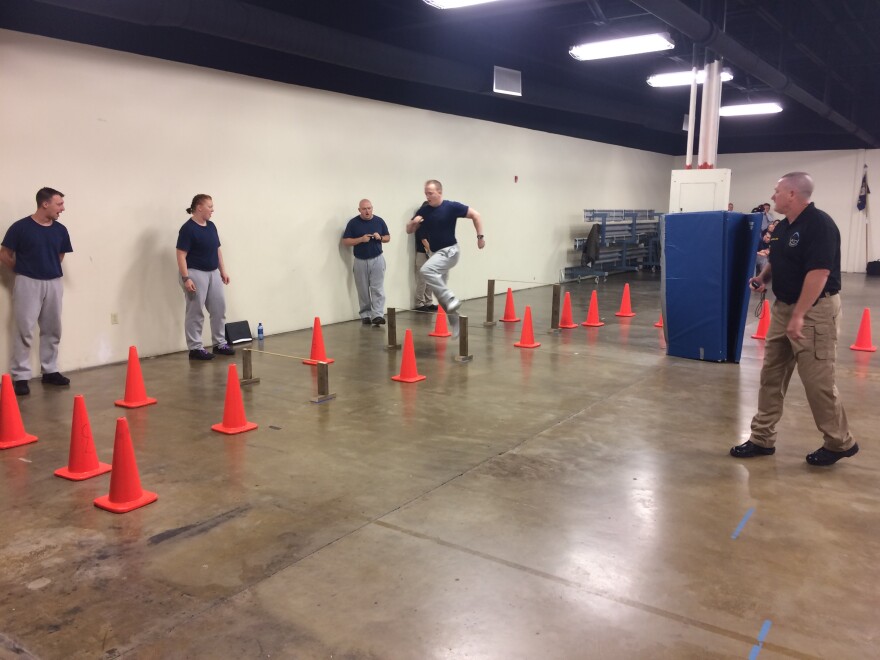As a prerequisite to working in the state’s prisons corrections officers have to spend time at the West Virginia Department of Military Affairs and Public Safety Professional Development Center. Cadets in the program go through several types of training there.
The Professional Development Center in Glenville in Gilmer County hosts the cadets during their training period. Among the training are things like agility obstacle courses and edged weapon defensive tactics training. Garrett Powell is a cadet at the facility.
“When I first came into the regional jail authority, the physical test was more along the lines of push-ups and sit-ups and how high you can jump,” Powell said. “The agility test really helped open it up to ensure that we are physically fit, as you saw there is jumping involved and being able to pick things up on the fly.”
The facility works to train those working in the regional jail system, juvenile services and divisions of corrections. Usually a few months after being hired and after undergoing initial training officers come to the facility and become cadets for 6 weeks.
Ron Casto is Deputy Director of Training for the West Virginia Division of Corrections.
“We work in a closed-door society, every day when we go to work the doors close behind us and the only people that get access to those facilities or the profession are the ones that we allow,” Casto said. “It’s not because we like it that way, it’s because it’s the nature of our job and the commitment we have to public service.”
He says trainers are put through rigorous training to make sure they’re ready for the job because it can be quite stressful.
“We deal with human beings, lots of times there is no black and white,” Casto said. “There is a lot of sacrifices that have to be made, we have posts that have to be covered 24 hours a day, it can be quite stressful. The average life expectancy of a correctional officer is somewhere between 56 to 57 years. “
Cadets range in age from those in their first employment to those restarting their careers.























